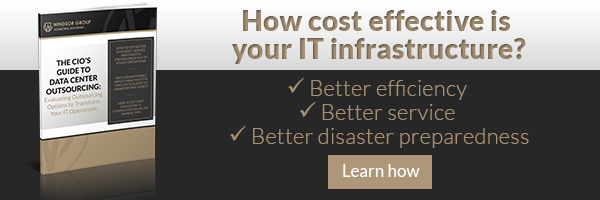
Although it has only surfaced in recent years, copy data management (CDM) is continuing to grow in popularity within the IT community. About 5 years ago, organizations became acutely aware of the high costs, time allotment, and complexity associated with storage consumption management, and recognized the need to reduce the unnecessary duplication of production data.
Before copy data management came to fruition, an organization’s backup software and subsequent enterprise applications would operate independently, often creating multiple copies of the same data. While this helped to facilitate additional disaster recovery support, these redundant copies were cause for wasted storage space, slow network performance, and made accessing or restoring business critical data extremely difficult.
In an effort to eliminate cumbersome processes and minimize the number of ‘full copies’ being created, Actifio, the undisputed leader in the copy data management space, released its Virtual Data Pipeline™ technology. Virtual Data Pipeline™ can be described as a distributed file system that works to virtualize the core fundamentals of data management that allows any business application to create virtual, point-in-time copies of data on-demand. Not only does this offer the most efficient way to manage data growth, but it does so in a way that also enables businesses to address, and solve for, their IT challenges in terms of information resiliency, agility, and cloud.
The Business Impact of Copy Data Management
Although copy data management can be applied across various applications to improve efficiency and productivity, the impact it has had from a high-level business perspective is tremendous.
-
Resiliency
At a time when cybersecurity threats are at an all-time high and data protection is a primary concern for CIOs and business leaders alike, IT organizations must focus on adopting the systems, tools, and technologies that will facilitate greater levels of security while also increasing operational agility. With the ability to access business critical data at a moment’s notice, copy data management allows organizations to maintain high availability while dramatically improving data protection capabilities and disaster recovery preparedness.
-
Agility
It’s no secret that business and market demands can change in an instant, and an organization’s infrastructure and critical applications must have the flexibility and adaptability to keep up. Copy data management, due to its ability to decouple data from physical infrastructure, enables businesses to significantly decrease their storage footprint while also facilitating rapid software updates and increased speed-to-market; ultimately helping to create a more agile operation.
-
Cost Savings
Simply put, less physical infrastructure and fewer software licenses equates to cost savings. Without the need support as much physical space, power and cooling costs, storage costs, and software licenses, businesses can significantly reduce their total cost of ownership (TCO). Copy data management, due to it agile nature, allows IT organizations to accommodate ever-changing demands while also fulfilling the growing need to create a more cost-effective operation.
To realize the full benefits of copy data management, many organizations have turned to data center outsourcing as the solution. From cost and organizational optimization to increased efficiency, shared risk, and greater levels of operational agility, data center outsourcing allows businesses to implement copy data management quicker, more efficiently, and more effectively than if they were to do it in-house.


